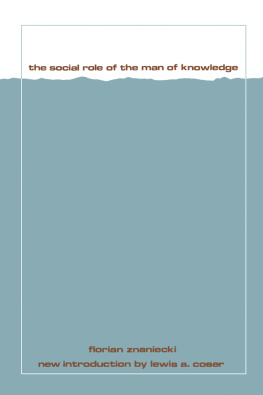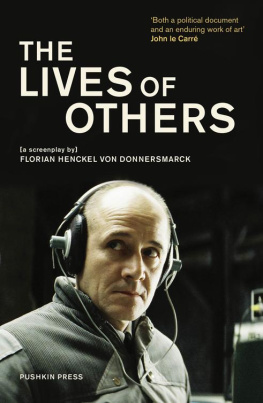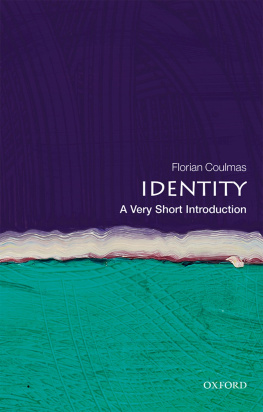
THE SOCIOLOGICAL EYE
Social Science Classics Series
Vilhdm Aubert, The Hidden Society
Samuel Bernstein, French Political and Intellectual History
Herbert Blumber, Critiques of Research in the Social Sciences
G.S. Churye, The Scheduled Tribes of India
G.D.H. Cole, Guild Socialism Restated
Charles Horton Cooley, Human Nature and the Social Order
Charles Horton Cooley, Social Organization
Everett C.Hughes, The Sociological Eye
Benedetto Croce, Historical Materialism and the Economics of Karl Marx
Albert Venn Dicey, Lectures on the Relation between Law and Public Opinion in England during the Nineteenth Century
Adam Ferguson, An Essay on the History of Civil Society
Ludwig Gumplowicz, Outlines of Sociology
Helen MacGill Hughes, News and the Human Interest Story
Kurt Kofflka, Growth of the Mind
Walter Laqueur, Young Germany
Harold J. Laski, The American Presidency
Gustave LeBon, The French Revolution and the Psychology of Revolution
Gustave LeBon, The Psychology of Socialism
Walter Lippman, A Preface to Morals
Helen Merril Lynd, England in the Eighteen-Eighties
Harriet Manineau, Society in America
Vilfredo Pareto, The Transformation of Democracy
Joseph A. Schumpeter, The Theory of Economic Development
George Bernard Shaw, The Intelligent Womans Guide to Socialism
Werner Sombart, The Jews and Modern Capitalism
Anselm Strauss et al., Psychiatric Ideologies
William Graham Sumner, Earth-Hunger and Other Essays
Thorstein Veblen, The Engineers and the Price System
Thorstein Veblen, The Theory of Business Enterprise
Graham Wallas, Human Nature in Politics
Max Weber, General Economic History
Floran Znaniecki Cultural Sciences
THE SOCIOLOGICAL EYE
Selected Papers
EVERETT C. HUGHES
With a New Introduction by
David Riesman and Howard S. Becker
First published 1984 by Transaction Publishers
Published 2017 by Routledge
2 Park Square, Milton Park, Abingdon, Oxon OX14 4RN
711 Third Avenue, New York, NY 10017, USA
Routledge is an imprint of the Taylor & Francis Group, an informa business
New material this edition copyright 1984 by Taylor & Francis
Original edition copyright 1971 by Everett Cher-rington Hughes.
All rights reserved. No part of this book may be reprinted or reproduced or utilised in any form or by any electronic, mechanical, or other means, now known or hereafter invented, including photocopying and recording, or in any information storage or retrieval system, without permission in writing from the publishers.
Notice:
Product or corporate names may be trademarks or registered trademarks, and are used only for identification and explanation without intent to infringe.
Library of Congress Catalog Number: 84-2427
Library of Congress Cataloging-in-Publication Data
Hughes, Everett Cherrington, 1897
The sociological eye.
(Social science classics series)
Reprint. Originally published: Chicago: Aldine-Atherton, 1971.
Includes bibliographical references and index.
1. Sociology-Addresses, essays, lectures. I. Title.
II. Series.
ISBN 0-87855-959-0 (pbk.)
ISBN 13: 978-0-87855-959-6 (pbk)
Introduction to the Transaction Edition
David Riesman and Howard S. Becker
Everett Cherrington Hughes died in Cambridge in his eighty-sixth year on 4 January 1982. Those who knew him as teacher, colleague, and friend will remember him as a man who combined the curiosity of the scholar and scientist with that of the novelist and artist concerning life about him. But his interests went far beyond this time and this place. His formation, as his French Canadian and Jesuit friends might have termed it, began at the hands, and through the books, of his revered father, a cultivated and widely read Methodist minister who over the years had lived in a number of small Ohio towns. Everett knew that his father had suffered from both racial and religious intolerance; he had seen the Ku Klux Klan burn a cross on his fathers lawn because they saw him as a nigger lover. Late in life, reading his fathers diaries, Everett realized how much his fathers freedom of thought and skepticism had resembled his own: his father had been not only a nigger lover, but had also doubted the then prevalent interpretations of the Bible.
Everett read widely in history and biography as well as in sociology, anthropology, and social psychology. He enjoyed discovering novelists, and not only contemporary ones. Loving to talk about books, he would bring his discoveries to the attention of his friends. Those discoveries included Robert Musils novel, The Man Without Qualities; novels from postcolonial Africa; German writers, particularly the works of Heinrich Boll; and French Canadian writers such as Marie Claire Blais. Everett played the piano and loved music. He loved early and Baroque music, primarily Bach, but also such moderns as Hindemith. Both Everett and Helen Hughes enjoyed contemporary painting and sculpture. Beauty meant much to him. Even in failing health, he spent endless hours in his garden in Cambridge, cultivating flowers like a Zen monk. The graceful and allusive style of his writing reveals his aesthetic sensibility.
In his formation as a social scientist, Everett had what now seems to have been an advantage, characteristic of many academics of his era, of not going directly from college to graduate school. In those days people often had to take a turn at teaching or some other job to earn the money to start graduate studies. As a consequence they arrived in academia with some knowledge of the outside world and of cultures other than those of the more or less highly educated. Everett got a job in the Green Bay area teaching English, helping to acculturate immigrant lumberjacks from Finland, Yugoslavia, Italy, and the Ukraine. Later he performed similar tasks with the multiethnic work force at Inland Steel Company in Chicago. After five years of these wanderings, when he entered graduate school in the Department of Sociology and Anthropology at Chicago, he helped support himself by working for the Chicago Park Service. There his work again brought him into contact with people from the various ethnic neighborhoods of the city. His experience thus prepared him for the omnivorous curiosity of Robert E. Park, who had been a journalist, an aide to Booker T. Washington, and a student of philosophy who entered sociology at the age of fifty. Park became a lifelong friend as well as a mentor to both Everett and Helen Hughes.
It is also important in the development of his career that, after taking his degree in 1928, Everett did not stay on at Chicago. He went to teach at McGill University in Montreal. It was in that multilingual setting that he encountered most sharply a theme that occupied him throughout his life: the way industrialism and urbanization mix people of different religions, ethnic groups, races, and cultures in this case, the peasant Catholic French Canadians and the industrial and commercial English speakers. To this day, Everett remains a patron saint of Canadian social science, crossing the sharp dividing lines both within Quebec and between Quebec and the rest of Canada. He was the abiding neutral, dispassionate but not uncritical. He was hostile to all nationalisms and ethnocentrisms (including those of peoples believing themselves to be oppressed minorities), but at the same time he was comprehending and not self-righteous. He knew, and said again and again in his writings, that we are all ethnocentric.













